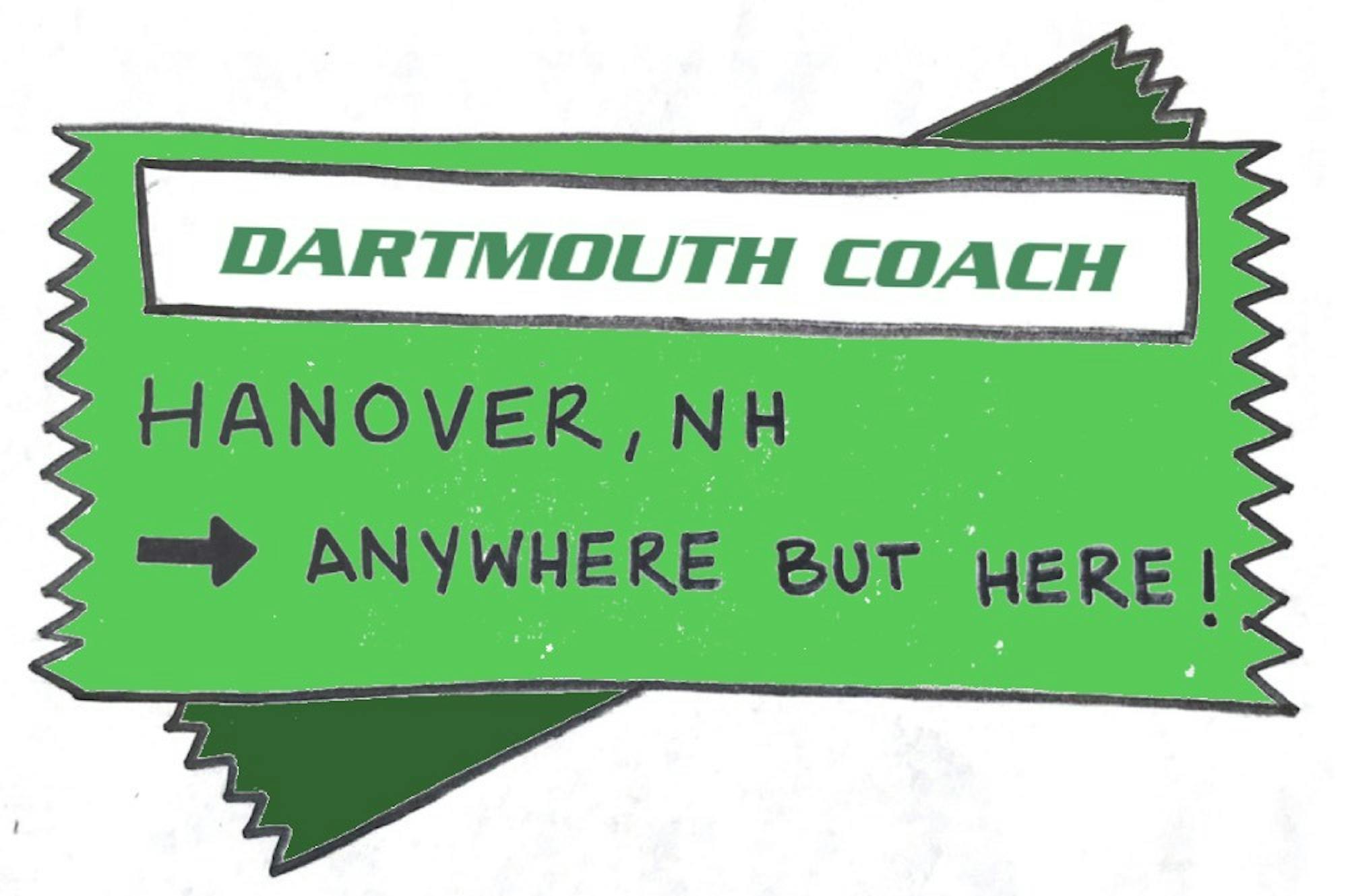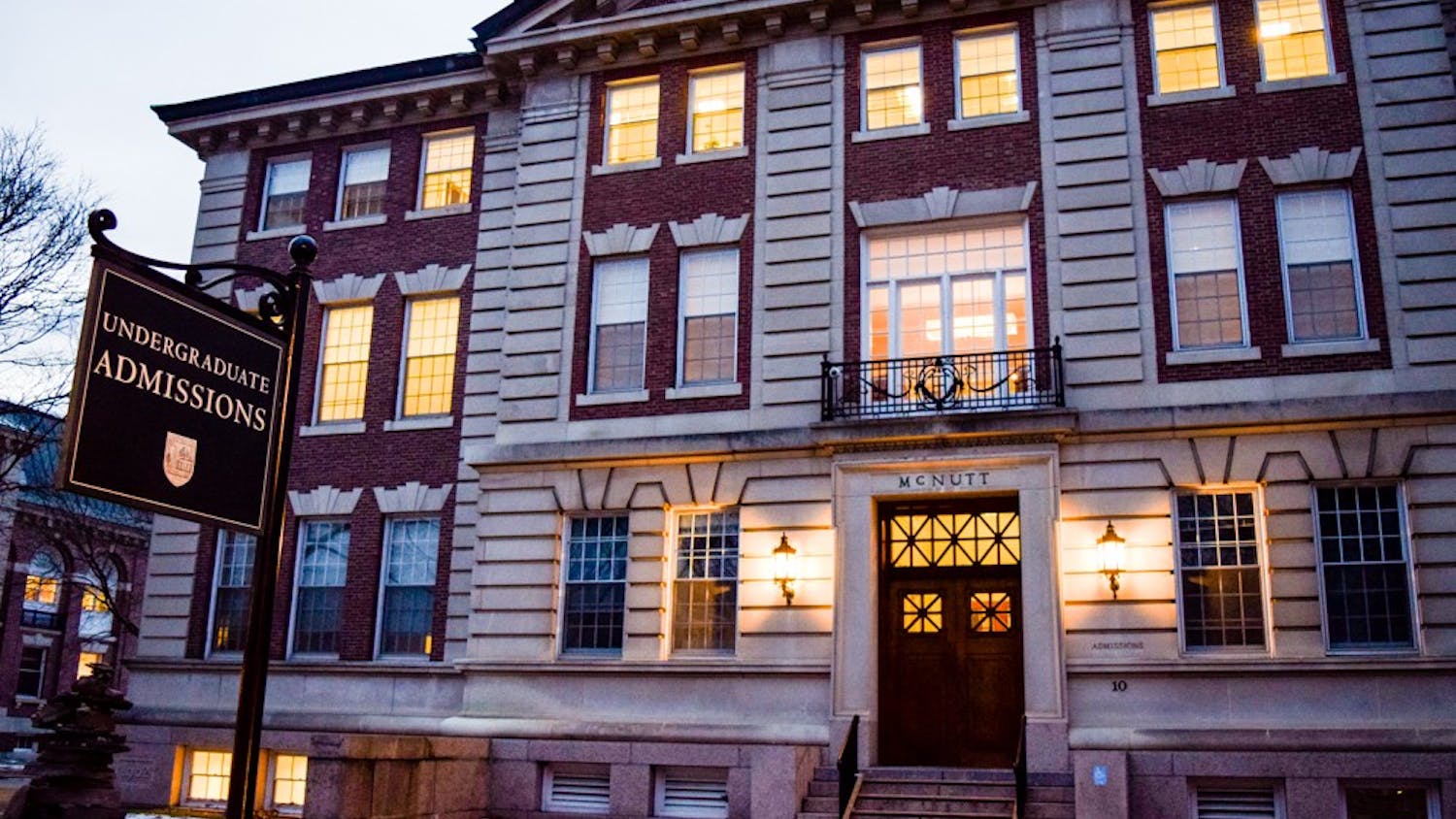Students at Dartmouth tend not to leave.
No, I’m not talking about finding transportation off-campus. I’m not talking about study abroad and off terms, either.
I’m talking about the retention rate.
According to the Office of Institutional Research’s website, Dartmouth’s fall-to-fall retention rate hasn’t dropped below 96 percent since at least 2007, with 2018’s rate being on the higher end at 98 percent. The four-year graduation rate, which has been calculated up through the Class of 2015, has consistently been between 86 and 88 percent, while the six-year graduation rate’s range jumped up to 94 to 96 percent, calculated through the Class of 2013.
To put those numbers into perspective: According to the National Center for Education Statistics, about 60 percent of students nationwide who began seeking a bachelor’s degree at a four-year institution in fall 2011 completed that degree at the same institution within six years.
At Dartmouth, out of the Class of 2013’s incoming class size of 1,112, just under 970 graduated within the standard time of four years, and after two more years, that number had risen to just under 1,060. Only around 50 students who enrolled at Dartmouth in fall 2009 didn’t have a Dartmouth degree six years later. Such in-depth data hasn’t been made available for more recent class years, but even given the most recent data available — which was the fall-to-fall retention rate for the Class of 2018 of 98 percent — less than 30 students who had enrolled in fall 2014 were no longer enrolled by fall 2015.
For the relatively few students who do leave: why?
For some, it’s the social environment. Rachel Muir, a former ’20 who took a mental health leave starting in winter 2018 before transferring to Northwestern University later that year, cited the prominence of Greek life as a major reason why they left Dartmouth. They said they wanted to participate in some of the same “quintessential” social experiences that others did but felt uncomfortable and unsafe in the Greek spaces where they were usually held.
Sophomore fall, they grew even more upset seeing signs of Greek life all around campus. They were especially frustrated seeing students participate in the “rush rituals” after joining a house toward the beginning of the term and found that even their friends who hadn’t rushed were still gravitating toward Greek houses because they were the main social outlet.
For others, it’s how students engage with academics. Farid Djamalov, a former ’21 who transferred to Yale this past fall, said he had thought about transferring his first year at Dartmouth, but he didn’t feel like he knew Dartmouth well enough to make such a big decision. He studied art history — according to the Office of Institutional Research, the 27th most common major in 2019 with only nine students — and encountered pushback and felt the need to explain his choice while at Dartmouth.
For other students still, it’s mental health more than anything. Terin Trachtenberg is a former ’20 who withdrew in April 2017 before enrolling in a local community college that fall and finally at Lewis & Clark College this past fall. He said that before deciding to permanently withdraw from Dartmouth, he started with a temporary leave to prioritize addressing his severe depression and anxiety.
While Trachtenberg really wanted to be able to stay and succeed at Dartmouth, he said his mental health eventually reached the point where even going to class was difficult, and there would be days when leaving his dorm room once for food was all he could handle. The pressure to not just succeed but also exceed expectations academically only made things harder.
“I had this big worry that maybe I had jumped too far into the deep end,” Trachtenberg said. “That maybe by coming from a public school in a tiny Oregon coast town and going straight into a super prestigious four-year university on the other side of the country, I’d bitten off more than I could chew.”
Once the decision to transfer has been made, what comes next? According to Djamalov, the process feels a lot like applying to colleges the first time around, except in his case, he had to juggle the application process with a four-class term. He was nervous about the low acceptance rate for transfer applicants and about how he would have to leave behind people that he truly cared about.
One thing Djamalov pointed to as a big problem with the transfer process is that transfer applicants often need strong applications to be accepted at other institutions. However, for many people unhappy at Dartmouth, there’s a good chance that unhappiness would show in their grades and activities. He acknowledged that even though Dartmouth wasn’t the best match for him institutionally, he did well academically and was involved in several clubs while at Dartmouth.
“Unfortunately, with the way the system is set up, you’re supposed to only be miserable insofar as you can still be thriving,” Djamalov said.
In addition to the acceptance rates and friendships left behind, Muir was also concerned about financial aid throughout the transfer process. Even though Greek life was one of their biggest issues with Dartmouth, Muir still applied to schools with Greek life because they said they were often the same schools that provided generous financial aid.
“I didn’t really filter what colleges I was applying to transfer to based on whether or not they had Greek life because I knew that I needed to apply to schools that could give me good financial aid, and unfortunately the schools that will do that almost all have Greek life or something equivalent,” they said. “I just wanted [it to be] less of a focus.”
Muir mentioned looking specifically at schools that participate in the QuestBridge program, which partners with colleges and universities to offer support to low-income students, as those schools would have be more likely to provide good financial aid.
Trachtenberg, unlike Djamalov and Muir, didn’t jump right back into another four-year university and instead enrolled in Oregon Coast Community College, where he earned his Associates’ Degree. He had always planned on returning to a four-year college eventually but feared that if he had done so right away, the same issues that occurred at Dartmouth might have just happened again, which he said would have been “disastrous.”
He believes that choosing to go to community college first was the right choice, even though if he had to deal with the guilt of dropping out of Dartmouth and feeling like he had thrown away opportunities by making a “downgrade.” He explained how he had an easier time connecting with his classmates at Oregon Coast, possibly because of a more relaxed culture and feeling at ease around fellow Oregonians.
“It seems like at Dartmouth, even if students were unhappy or struggling, the prevailing opinion was ‘just keep pushing forward,’” Trachtenberg said. “I guess for me, I reached a point where keep pushing forward was an unsustainable action. It was only making things harder on me, and I wasn’t going to be able to succeed in my classes that way.”
Thankfully, all three former students say that they’re doing much better now than they ever did at Dartmouth.
Djamalov says he is still extremely grateful to his friends and professors back at Dartmouth and finds Yale to be what he hoped college would be like from the start. He said he enjoys how at Yale, he feels more comfortable with his choice of major and appreciates how he has so many conversations in which “people don’t think it’s inappropriate to bring up class material outside of class.”
He said he still thinks about how much he simply accepted at Dartmouth without questioning it; it wasn’t until going to Yale that he saw how different his college experience could be.
“Even right now, I’m still processing through so much of the constructed aspects of Dartmouth that were unnecessary,” he said. “Or not even unnecessary, but just constructed, and I just assumed that was part of any college experience.”
Muir was concerned when they first transferred, especially because as a first-generation, low-income junior transfer, they found that a lot of their fellow transfer students were both more privileged and younger. They said that they’ve found friends and communities that they feel comfortable in, and they pointed out how things like resources for low-income students just feel “more visible” at Northwestern compared to Dartmouth.
While Muir is having a positive experience at Northwestern, their perspective on the role of college as a whole has changed quite a bit over time. Their choice to attend Northwestern, which, like Dartmouth, has a well-known name, was influenced by factors like finances and location, but they no longer believe that a big-name school is what they need most.
“I thought that I needed a name like Northwestern or Dartmouth to stick myself to, to be palatable to the professional world,” Muir said. “I no longer think that … at the time that’s what I thought I needed, to lift myself out of poverty, and in order to do that, I would need this school.”
At Lewis & Clark, Trachtenberg is enjoying yet another transition to another school. He found that he didn’t connect to the other students at new student orientation as easily, as they were mostly first-years younger than him, but he finds himself attending optional activities more often, and he’s even thinking of getting involved in the leadership of his Queer Student Union.
Trachtenberg said he looks back on his experience and is glad he at least attempted to attend Dartmouth, as he learned that he was capable of making a major life change and sticking with it for a while. However, his one regret is that he probably stuck around just a little too long and wishes he hadn’t been so stubborn in admitting he needed to leave. If he could do it again, he might have left after his freshman winter instead of partway through his freshman spring.
Trachtenberg stresses, however, that even though his improved grades might suggest that transferring was an instant cure-all to his problems, it was anything but. He talked about how he attended several therapy sessions in his hometown to work through his feelings of depression, anxiety and guilt from dropping out of Dartmouth. His first term at community college was hard, and even now he has moments of feeling in over his head.
He has a positive outlook, though, that after everything, he’s in a better position to confront those feelings in a healthy, productive way.
“I still had to struggle through the feelings of depression and anxiety and guilt that had accrued during my time [at Dartmouth] when I was finding little success,” he said. “My first term at community college was a struggle. The critical difference is that when those feelings happened at Dartmouth, I would kind of shut down, and when those feelings happen here, I’m able to make a plan to deal with the stressors.”




